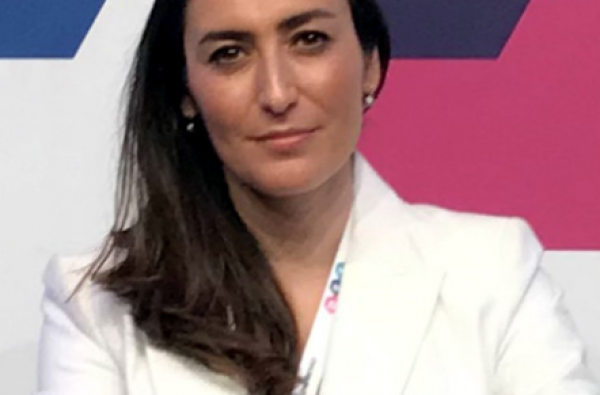For Ikea Spain's Digital Strategy Director, Mosiri Cabezas, the digital transformation must be approached from a sensible point of view and not limited to following fashions and, to this end, she highlights the need to preserve the essence that makes each company unique.
Ikea Spain's Digital Strategy Director (Chief Digital Officer), Mosiri Cabezas, is concerned that there are companies that, by image, are wanting to run in technological innovation at a pace beyond their means. "It sells more to talk about customer experience than more mundane realities such as, for example, that not all companies have their databases in order", she points out. Cabezas invites you to reflect professionally, to be realistic and not to lose your way in the fashions imposed by the digital giants. For her, technology is only effective when it is focused as a means to know the client better and to be more efficient in our processes and always if it is combined with the instinct and criteria of the human teams.
One of the 10 Emerging Technologies that MIT Technology Review has selected in 2018 is artificial intelligence services in the cloud. What do you think of this trend?
What I wonder and what scares me a little is that, when we talk about trends, we bring the present or future of a few companies and transfer it to the presence of most companies. Some are being disruptive in many industries, but in reality, few in our country are already using these technologies. You have to be careful not to create frustration because in Spain... how many companies use blockchain and artificial intelligence in their day to day? I don't think that all the actors in the retail world in this country have artificial intelligence, neither in the cloud, nor "on-premises" to manage their business intensively. Before accessing these services, there are many more basic things we have to do. We must also talk before re-engineering processes to approach the mapping and simplification of processes in order to move forward.
Involuntarily, we are creating a great hype and taking complexity away from the transformation that we are going to have to live in many companies. It is not necessary to generate excessive anxiety when there is already a situation of natural crisis due to changes in the environment. And let us not forget that we are competing with actors who invent technology, a capacity that many of us in certain sectors still do not have. Big digital companies like Amazon, Netflix and Spotify are really the exception in today's market. Another thing is that they are the rule because they move such a critical mass of customers that they force us to change the way we work.
Do you think there is a race in the retail sector to be the pioneer in the implementation of new technologies?
Nowadays companies sometimes want to run too fast and that can cause them to lose their way. It is necessary to stop, reflect, listen to the workers and the customer, see what the competition does. Only then will it be possible to draw a map and define a route that allows us to advance at full speed.
"We are creating a great 'hype' and reducing the complexity of the transformation that we are going to have to live in many companies".
In addition, it seems that we are focusing only on the technological solution and not on the problem and need of the company or the customer. If we focus exclusively on technology, we may lose the main focus of our process. And if we lose it is because it is more attractive to talk about artificial intelligence than process re-engineering, or because it sells more to talk about customer experience than more mundane realities such as, for example, that not all companies have orderly and integrated databases.
What sets Ikea apart from the competition?
It's very important to know how to mix the power of technology with the power of people because there will come a time when, without certain tools, we won't be able to compete. It is essential to preserve the essence of the brand because I doubt that technology alone will achieve that differential value in companies. At Ikea we go back to the basics, back to the concept of going back to the origins to ask why Ikea? What makes us different from the rest? Because you don't feel the same when you walk into an Ikea store as when you walk into another company's store.
You have to take good care of that brand essence. Above all, if we bear in mind that we are heading towards a world in which we will potentially relate to fewer brands and in which the emotional closeness to them will have to be greater and greater.

Some of these technologies work by processing a large volume of customer data. How does Ikea use this information?
Since Ikea exists, 75 years ago, we've been obsessed with getting to know the customer. And to know him is to understand how he lives at home on every continent. We've been designing products based on people's behaviour for a long time. We have a customer base that we treat with the utmost affection and respect and our purpose with the constant management of these data is to know them better in order to address them in a more honest way. Until now many brands shouted at their customers, now technology allows us to whisper to them. The relationship becomes more fluid, happier and satisfying from the moment we can anticipate people's needs.
What actions are you taking to capitalize on this volume of information?
Data allows us to have new eyes, look at our business from different perspectives and increasingly balance the balance between instinct and data. We can now make business decisions in all areas more rigorously. The data in IKEA helps us, for example, in managing Ikea spaces and in speeding up our ability to react to change things in stores almost in real-time.
"When we have wonderful artificial intelligence, it is important that we include the criteria of people with experience and who understand the business.”
Sometimes, when we enter environments where the professional and the technological add up, we lose something basic, which is common sense. And here I speak as a person, not as a directive. In the end, technology tries to replicate the sum of something we already have as human beings, which is intelligence. Even when we have wonderful artificial intelligence, it is important that we include the criteria of people with experience and who understand the business. The balanced combination of both intelligences is the recipe to follow, but each company will have to find the right proportion at the right time.
Ikea, together with Apple, created the Ikea Place app, which serves to decorate any space in augmented reality. What impact will this technology have on the sector?
We were the first retailer to use their augmented reality kit. It's an example of technology applied to a customer need. Many customers told us they couldn't "imagine" what a product would look like at home or at work, and that's why we developed Ikea Places. With this app, the client no longer has to imagine, with his device he scans a space and can select products and place them in augmented reality to see how they would look in reality. Anyway, we keep learning and improving every day with the help of customers.
What qualities should a good Chief Digital Officer have?
The first thing is to have a lot of patience. You also have to be creative, brave, look for ways to solve problems differently, know how to handle the anxiety of running and have peace of mind to do things with a certain moderation. You don't need a telecommunications engineering behind your back, but you do need to have enough technological culture to know how to combine a problem with a technological solution. And, besides that, to be a person with a lot of curiosities in different areas of life.
How do you imagine Ikea in the future?
I imagine it 75 years from now with the same fascinating purpose: working every day to build a better everyday life for most people, putting in their hands: furniture, accessories and home solutions that are beautiful, functional, sustainable and accessible. I imagine it as today's Ikea, but adapted to people and their way of living in the future. And, as we will surely not be here, I dream of a place where our children could work proudly in a company with a wonderful purpose.
By Marta Sotres



